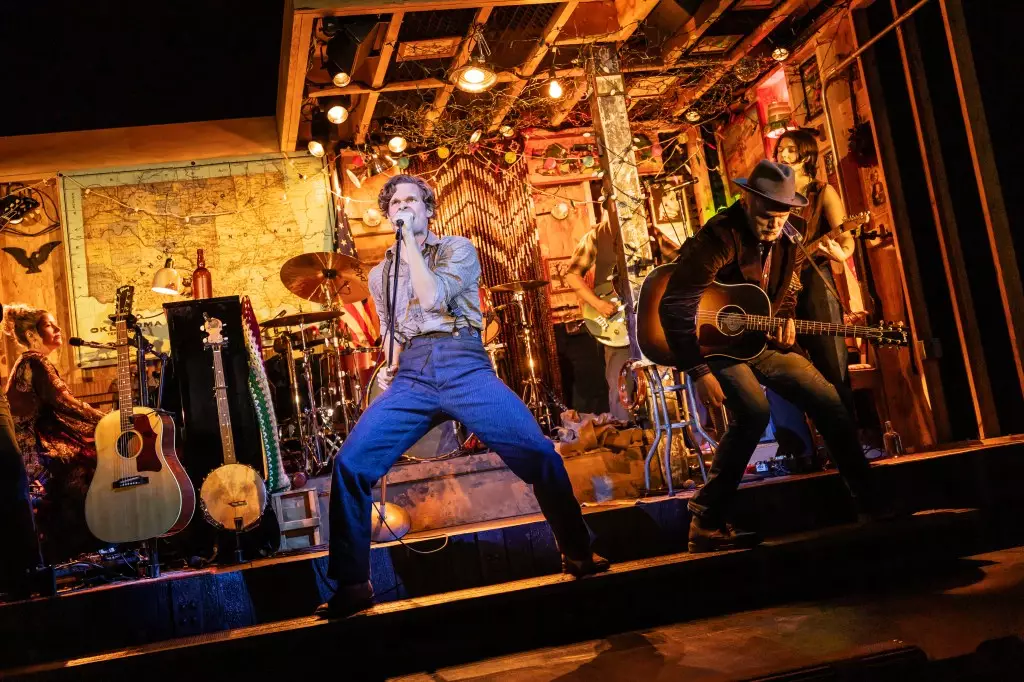As the vibrant tapestry of Broadway heads into the final days of the Tony Awards season—scheduled for June 8—it’s imperative to dissect how nominations affect box office dynamics. The countdown to the awards stirs anticipation among theater enthusiasts and investors alike, unveiling a curious interplay between critical acclaim and commercial viability. The contrasting fortunes of nominated and non-nominated shows reveal not just the markets’ arbitrary nature, but point to deeper narratives that speak to audience desires and the ever-shifting landscape of live performance.
Anomalies Amidst Trends
One of the most surprising cases this season has been *Redwood*, featuring the illustrious Idina Menzel. Despite not receiving any nominations, it defied expectations by reporting a remarkable gain of $191,581—culminating in a total gross of $818,697. This surge in ticket sales during its final week illustrates perhaps a curious phenomenon: the allure of a closure event. Audiences flock to see a production they may soon lose, an urgency that transcends the competitive framework of the awards. While attendance struggles to break the 85% mark at the Nederlander Theatre, *Redwood* serves as a case study for how scarcity can elicit demand, juxtaposed against the more predictable trajectories of its nominated peers.
Contenders on the Rise
Shows such as *The Picture of Dorian Gray*, enjoying six nominations, saw box office gains of $120,388, bringing its total to an impressive $1,324,626. The upward trend can be partly credited to the addition of a performance; box office receipts surged when audiences had more opportunities to engage with the material. A similar pattern occurred with *Good Night, And Good Luck* and *Sunset Blvd.*, which both announced commendable gains following their respective nominations. The former’s gross rose to $3,955,968, buoyed by star power—George Clooney’s presence played a pivotal role in driving ticket sales upward through the echelons of artistic acclaim.
The Whisper of Disappointment
Conversely, several nominated productions are experiencing troubling declines. Shows like *Smash*, which garnered only two nominations, observed an unsettling drop to $790,715, filling 78% of its seats—not exactly the kind of win that investors crave. *Gypsy* faced a similar fate, slipping to $1,142,179 at 74% capacity. In an industry where anticipation breeds enthusiasm, falling short of projected ticket sales can pose long-term implications. This downward trajectory begs the question: do awards merely serve as a litmus test for quality, or do they catalyze observable audience interest that ultimately fuels revenue streams?
Voices of the Shut-Outs
The stark reality for productions like *Othello*, which faced a complete shut-out in the nominations, raises intriguing questions about the perception of merit in theater. Surprisingly, *Othello* only saw a minor hiccup, dropping $23,367 while grossing an impressive $3,206,029. With sell-outs and a remarkably high average ticket price, this production paints a picture of what it takes to thrive, even in the absence of accolades. It raises the notion that some productions possess a unique inherent value, one that transcends the ephemeral judgments of award season.
A Broader Perspective on Broadway Trends
When we zoom out from the individual shows’ stories, the broader trends are equally telling. Across the board, total box office receipts for Broadway productions reached $44,351,676, marking a commendable increase of 2% week-over-week and 22% from the previous year. While the numbers reflect a vibrant market overall, it’s crucial to note the nuances lying beneath the surface. Audience engagement is not solely dictated by nominations; compelling narratives, word-of-mouth buzz, and production quality play equally significant roles.
The Balancing Act of Nominations and Audience Appeal
As ticket pricing stabilizes around an average of $131.81, the economic realities of Broadway require a delicate balancing act between artistic integrity and commercial viability. The ongoing 2024-25 season has amassed a staggering $1,845,375,536 in total gross, an astonishing 20% increase from last year. Yet, this growth does not shield all productions from the harsh truths of the marketplace. The correlations between Tony nominations and ticket sales serve as a lens into the complexities of audience engagement, revealing that awards can illuminate certain productions while overshadowing others.
Ultimately, the landscape of Broadway remains a vibrant and unpredictable entity. As the award ceremonies approach, the anticipation reflects not just a competitive spirit but an underlying yearning for storytelling that resonates with audiences.
